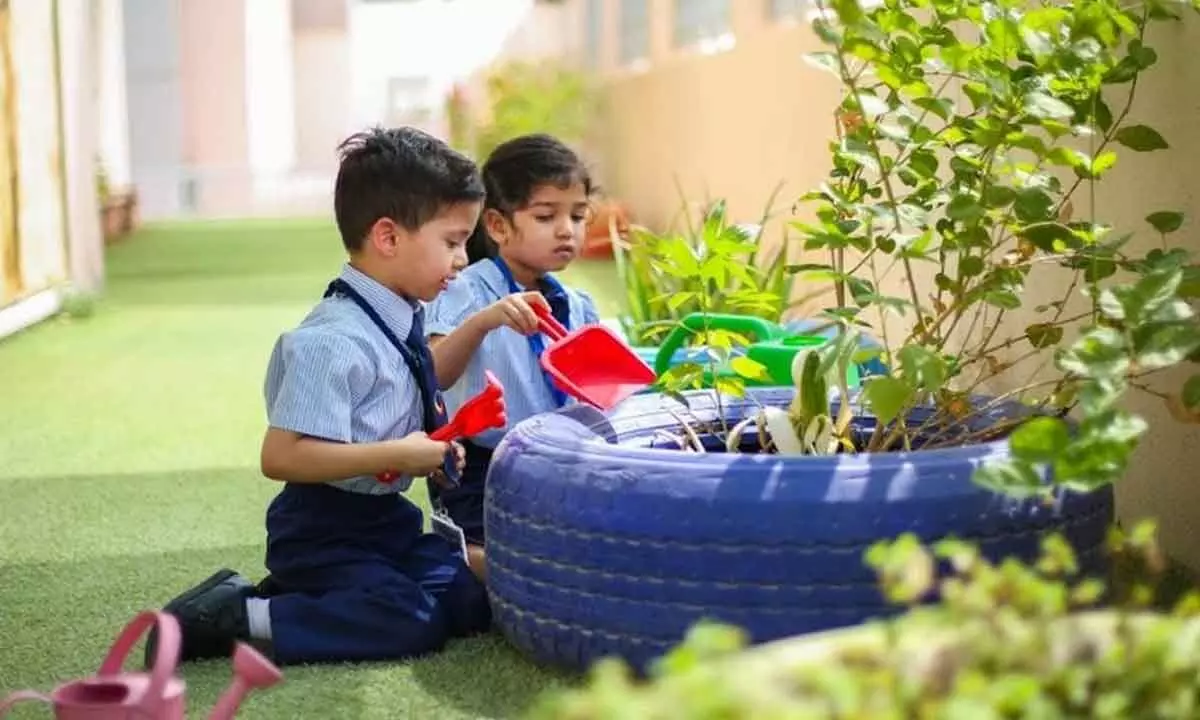Schools have a significant role to play in fostering a sustainable future

This World Environment Day has a vision that is crucial #BeatPlasticPollution and schools have a significant role to play in fostering a sustainable future. One of the most pressing challenges we face today is the overwhelming issue of plastic waste, which poses a severe threat to our environment, ecosystems, and human health. Schools have the ability to drive change in their communities by taking practical measures that can be implemented to create a plastic-free world
The world today is facing different kinds of environmental challenges that are expected to overhaul the normalcy of life as we know it. Right from the risks posed by fossil fuels, to ultra-violet rays of the sun and the endangered bio-diversity, the environment is at stake. This World Environment Day has a vision that is crucial #BeatPlasticPollution and schools have a significant role to play in fostering a sustainable future. One of the most pressing challenges we face today is the overwhelming issue of plastic waste, which poses a severe threat to our environment, ecosystems, and human health. Schools have the ability to drive change in their communities by taking practical measures that can be implemented to create a plastic-free world. As the first school in India to become completely solar powered, we firmly believe that acting as a role model for environmental sustainability can create a wave of knowledge and empower both students and community members to affect positive change.
Educating and Empowering Students:
Schools serve as the primary source of education for young minds, and it is essential to educate students about the environmental impact of plastic and the importance of sustainable alternatives. By integrating environmental awareness into the curriculum, we can instill in students a sense of responsibility and empower them to make informed choices. Lessons can include topics such as the life cycle of plastic, the consequences of plastic pollution, and the benefits of reducing, reusing, and recycling.
Schools can also organize workshops, guest lectures, and field trips to engage students actively. Collaborating with local environmental organizations and experts can provide students with valuable insights and hands-on experiences. By nurturing environmental consciousness from an early age, schools can shape the future generation into advocates for a plastic-free world.
Implementing Plastic-Free Policies:
In addition to educating students, schools should lead by example and implement plastic-free policies within their own premises. This can involve initiatives such as banning single-use plastic items like water bottles, plastic bags, and straws. Instead, schools can encourage the use of reusable alternatives like stainless steel bottles, cloth bags, and biodegradable straws.
Installing water refill stations can reduce the reliance on bottled water, thus reducing plastic waste. Moreover, schools can partner with local suppliers to ensure that cafeteria food is served in biodegradable or compostable packaging, eliminating the need for single-use plastic containers.
Creating Recycling and Waste Management Programs:
Promoting proper waste management is essential for reducing plastic pollution. Schools can establish comprehensive recycling programs that educate students about the importance of segregating waste and provide accessible recycling bins throughout the premises. Students can actively participate in waste management initiatives through designated recycling clubs or committees, taking responsibility for sorting, collecting, and processing recyclable materials.
Furthermore, schools can collaborate with local recycling facilities and engage in waste reduction campaigns. This can involve organizing collection drives for specific items like electronic waste, plastic bottles, or other recyclables. By involving the broader community, schools can amplify their impact and encourage sustainable practices beyond the school walls.
Fostering Partnerships and Advocacy:
are part of a larger ecosystem that includes parents, local businesses, and the wider community. By fostering partnerships with these stakeholders, schools can create a collective effort to reduce plastic waste. Parent-teacher associations can support plastic-free initiatives by organizing awareness campaigns, fundraising events for sustainability projects, and advocating for changes in school policies.
Engaging with local businesses can help schools procure environmentally friendly products and services. Schools can collaborate with sustainable suppliers, encouraging the use of biodegradable or compostable materials for school-related activities and events. These partnerships can also provide opportunities for guest speakers from environmentally conscious businesses, enriching students’ understanding of sustainable practices. Together, we can create a plastic-free world where the well-being of our planet and its inhabitants takes precedence over convenience.
(The author is a Managing Director, Canadian International School, Bangalore)
















